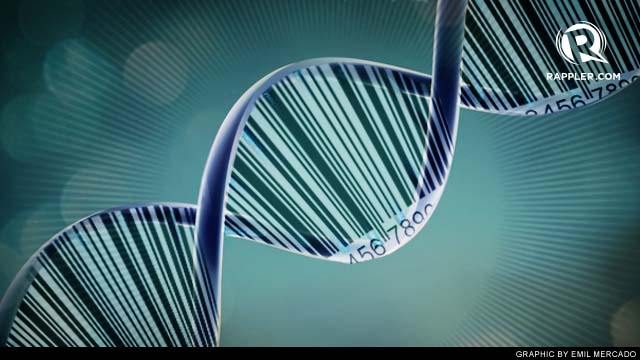"x x x.
I once described genes as nature’s first gift pack to each of us. I now take that back. This is because some companies already have patents for 20% of our genes. And that number will most likely increase.
This is how it happens. Pharma research dudes find the gene that causes serious diseases—like for example breast cancer or diabetes—and file a patent for it. When genes get patented, it means that before you can have any test done with that gene, you would have to pay license fees to the patent holder, even if it is your body that houses, suffers or celebrates that gene. In fact, if you want a different test on that gene, you still do not escape the royalty fees because you cannot do another test to that patented gene without first paying royalties to the patent holder.
Years ago, I wrote about how many pharmaceutical companies have filed for patents for human genes. It was my take on a very good piece written by Gary Stix in a Scientific American issue in 2004 entitled “Owning the Stuff of Life.” He revealed that 20% of the human genome is already covered by at least one patent per gene. I checked again and it seems that the proportion has not changed to this date. I don’t know about you but that does not quell my long standing uproar. Anything that lays claim to what I am made of deserves the intellectual equivalent of the martial arts defensive. I am still figuring out what level of science understanding do authorities in patent offices around the world possess to even consider that genes are fair game to patents.
I am sure that after reading the previous paragraphs, some of you have felt the hand of commerce invading your innermost chambers but you hear your own objections drown in the louder bells and whistles of the pharma companies’ cash registers. I wish I could tell you that there is hope but it gets worse. They are not only patenting genes now but also the processes that happen inside our bodies.

According to the Guardian online dated May 25, Jacques Cohen, a foremost embryologist published his objection to the approval of the US patent office of a mechanism involved in embryo development. Dr. Cohen published it in Reproductive BioMedicine Online. The US Patent Office approved the patent filed by Auxogyn and Stanford University on the “cell cycle data” of the human embryo. “Cell cycle data” is the scientific term for the timing of the three cell cycles of an embryo as it develops. Getting a clear picture of what actually happens when an embryo develops is crucial in in-vitro fertilization (IVF) treatments. This timing in human embryo development exists whether or not the dudes in Auxogyn and Stanford documented it or not. But now, they own it.
To be clear, patent filers and holders are not only business people. They also include scientists. But the scientists who are opposed to the patenting of natural processes say that aside from it being unethical, it also hampers research since it would prove more and more costly to study genes or bodily processes that are already covered by patents. Non-scientists should lament that because, while research is done by scientists, the results affect all of us. From my limited legal perspective, there is no disputing that we all commonly possess the genes and processes that pharma companies are beginning to own. Whatever happened to “possession is 9/10 of the law?”
I think this is another tragedy of the commons—a term used to refer to the sad fate of natural resources, like our forests and seas, that we all know we collectively own. Because we take them for granted that they are free, selfish interests are not checked and this results in the degradation or the depletion of those resources. Now, we seem to be bringing that same tragedy to our innermost spaces- our genes and our physiological processes. We effectively surrendered them to these companies because we took them for granted that they were inviolably ours. But alas, commercial minds most likely aided by lawyers saw that to be a potentially profitable oversight and lo and behold, we now have patented genes.
You think that is bad enough? Oh but wait, there’s more. The work on understanding the brain has just begun and two big projects spearhead this effort. One will try to simulate the human brain. The other will map the connections between and among our 86-100 billion neurons or our “connectome” and perhaps, the movement, behaviour, talent, diseases that they give rise to. What if companies started getting patents approved for those connections? How much longer do you think can we call our minds our own? – Rappler.com
Maria Isabel Garcia is a science writer. She has written two books, “Science Solitaire” and “Twenty One Grams of Spirit and Seven Ounces of Desire.” Her column appears every Friday and you can reach her at sciencesolitaire@gmail.com.